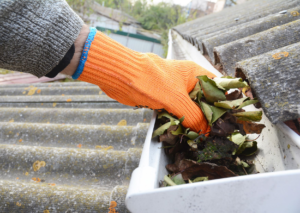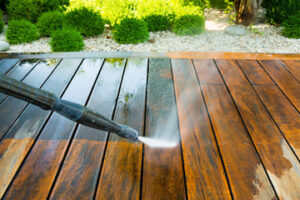Roofing contractor is a construction professional who can oversee the various aspects of your project. Roofing contractors can provide you with an estimate that includes design specifications and details, as well as material choices.
Be wary of contractors who offer vague estimates. A contract provides clarity and eliminates any oral promises.

Roofing contractors have specialized knowledge in the construction of roofs. They are able to identify the best roofing materials for a building and install them effectively. They also know how to repair and maintain roofs. In addition, they can handle other parts of the house that are related to the roof, such as windows, sidings, and gutters. Roofing contractors also have access to a wider range of roofing materials than general contractors, so they can provide clients with a more cost-effective solution.
Several definitions of expertise exist, but the most common is that it is the ability to perform a task at an elite level within a domain. This skill is acquired through deliberate practice and learning from experience. Experts are able to solve complex problems and make decisions quickly. They are also able to explain their actions and why they are effective. Experts often use a variety of terms to describe their skills, including virtuoso, master, maven, prodigy, and genius.
In some cases, experts may collaborate with other professionals on projects. They can work as part of a team or with a project manager to coordinate the various aspects of a construction project. Moreover, they can help to ensure that the construction is completed on time and within budget.
Moreover, roofing specialists have the experience and the tools to ensure the safety of their workers on the job site. They can recommend the best safety equipment for the project, such as sponge pads, special footwear, and ropes. This ensures that the project is done safely and correctly, so that the workers can complete their tasks without any accidents or injuries. Ultimately, this will save the customer money and reduce the risk of legal action.
Experience
Roofing contractors have extensive experience with the installation, repair, replacement, and inspection of roofs. They are also knowledgeable about different types of roofing materials, such as wood and asphalt shingles. In addition, they have the skills to handle hand tools and ladders safely. Moreover, they know how to address unexpected problems during the roofing process. In addition, they can save you time and money. They also offer a warranty on their work.
A roofing contractor’s experience enables them to identify and resolve issues before they arise, which can save you from costly repairs and extend the life of your roof. They also have the knowledge and expertise to make informed decisions about roofing materials and ensure that their work meets high craftsmanship standards.
Unlike general contractors, roofing contractors specialize in the installation of roofs and other parts of a house that interact with or depend on the roof. They may also perform other home-improvement services, such as windows, sidings, and gutters. They have specialized training and equipment and typically offer warranties on their work.
The most important factor in choosing a roofing contractor is their ability to do a good job. Check out their reputation and reviews online before hiring one. Look for positive comments about customer service, workmanship quality, and professionalism. Avoid companies with bad reviews, as they may not be able to provide you with the best service. Also, consider choosing a local company that has roots in the community. This way, you can trust them to do a great job and stay in business. Moreover, local companies are more likely to stand behind their warranties.
Insurance
Roofing contractors are often required to be licensed and insured, which is a good way for people or government entities to know that they’re dealing with a professional. They also need to carry general liability insurance that will pay for medical bills, funeral costs and more if someone is hurt or dies as a result of the work. Roofing contractors should also have surety bonds, which will cover the client’s financial losses if they aren’t able to complete the job.
Depending on the business, a roofing contractor may need other types of insurance as well. For example, workers’ compensation insurance will pay for treatment costs, injury lawsuits, and lost wages if an employee is injured at work. It’s also worth looking into cyber liability insurance, which can help to cover computer hacks and breaches if the business uses computers to store data and communicate with clients.
Other types of insurance that roofing businesses can look into include commercial umbrella protection, which goes above and beyond your standard business liability policy to protect you against high-dollar claims. You can also consider adding a tools and equipment floater to your coverage, which will pay for any specialized tools or equipment that you use in your work. Lastly, if you need to transport your tools and supplies between projects, it’s worth looking into inland marine insurance.
Many roofing contractors will find that a business owner’s policy (BOP) offers them the best value when it comes to business insurance, as this usually bundles three different types of insurance into one package. It should contain business liability, commercial property and loss of income insurance, and will typically offer protection against fire, theft, natural disasters, and flooding.
Permits
Depending on where you live, your town or city may require you to get a permit for your roofing work. This allows a building inspector to visit your property while the project is in process and make sure that all of the construction meets code. Without a permit, you could face fines or even have to remove the construction that you’ve already completed.
In most areas, roofing contractors are required to have a state license. This typically involves passing an exam and having years of experience as a journeyman or foreman or contractor before you can apply for the license. This ensures that your roofing contractor has the skills necessary to complete any roofing job.
Most states also require that roofing contractors be licensed before they can take on commercial or residential work. Some of the qualifications for this type of license include years of experience in the roofing industry, a minimum age requirement, and a background check. Some states may also have additional requirements such as insurance and bonding.
Many homeowners assume that they are responsible for ensuring that their roofing contractor obtains a permit before beginning work. However, this is not always the case. A homeowner who attempts to pull their own permit is liable for any injuries or damages that occur during the roofing project. They are also responsible for redoing any work that fails inspections.
Choosing a roofing contractor who has a state license is the best way to ensure that your roof replacement project is safe and up to code. Not only will this protect you from injury and liability, but it will also help to ensure that your roofing project is done correctly.
Safety
When working on a roof, there are numerous safety measures that must be taken into account. Roofing contractors will ensure that their workers are aware of these safety procedures and have the proper gear to protect themselves while working on rooftops. This includes ensuring that all workers receive adequate safety training before starting work, as well as making sure they are familiar with Occupational Safety and Health Administration (OSHA) guidelines and standards for roofing contractors.
Roofing contractors must also have an Emergency Action Plan (EAP) in place to deal with any safety-related incidents. This will include identifying the site’s street address and providing it to 911 staff in case of an incident, as well as ensuring that someone with first-aid training is present at all times. They must also provide a list of all chemicals on the roof and instructions for dealing with any exposures to them, such as eye contact or skin contact.
Workers on rooftops should have multi-layered approaches to fall prevention and protection, including using personal fall arrest systems, ladder safety tips and inspection checklists, a roofing mobile application, infographics and toolbox talks. They must also monitor weather conditions frequently, as a sudden change in weather can have a direct impact on the safety of those working on the roof.
Lastly, they must make sure that the roofing equipment used on each job is in good condition and has been properly maintained. They should also conduct regular inspections of the roof and all work areas, ensuring that hazards are identified and addressed quickly. Additionally, they should train their workers to keep their attention focused on the tasks at hand and not be distracted by other things such as phones, conversations or food.

